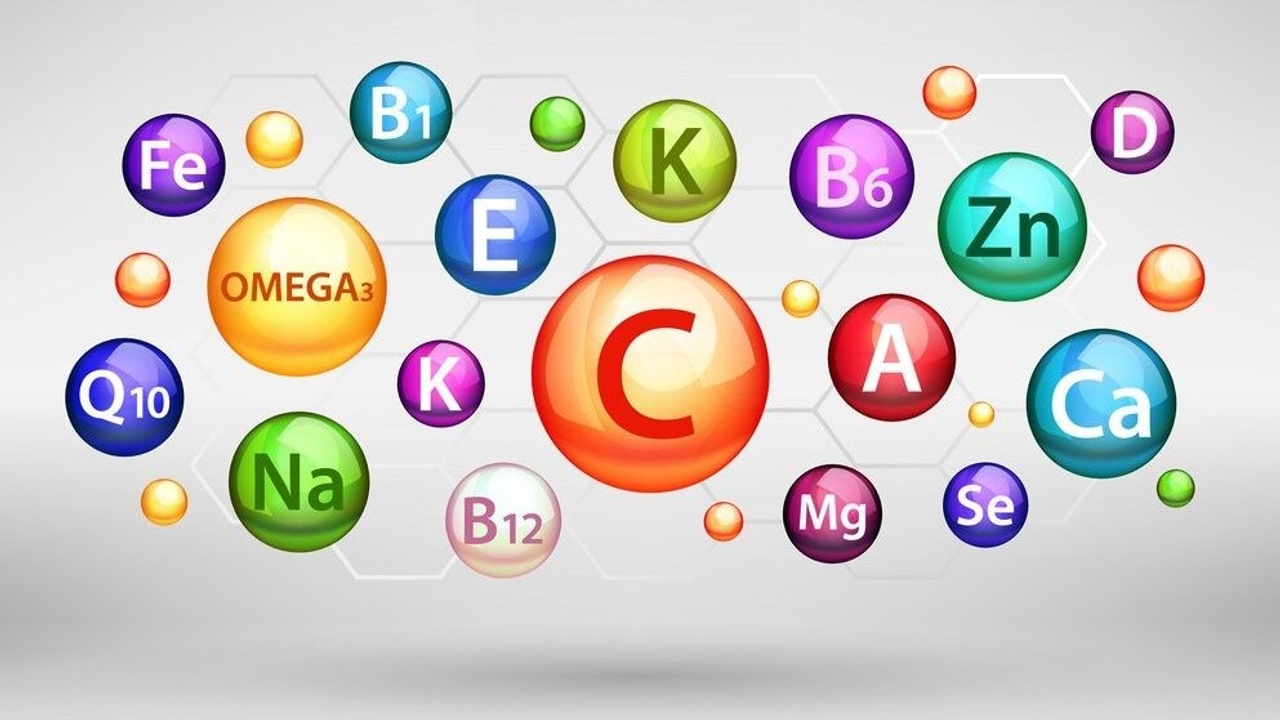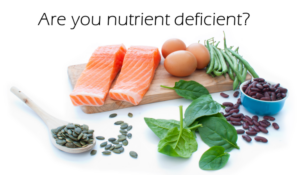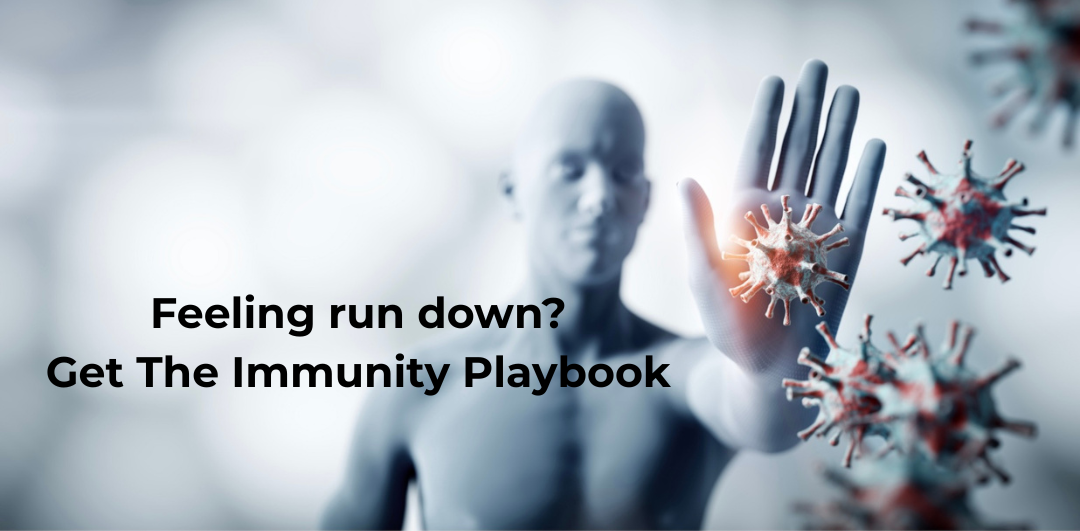The Story on Supplements
Apr 14, 2021
Have you heard of the “well-fed but undernourished” epidemic growing in America and other developed countries? More and more people are consuming more than enough food but getting far fewer nutrients than they need.
According to the CDC and USDA:
- 9 out of 10 Americans suffer from a potassium deficiency
- 8 out of 10 Americans suffer from a Vitamin E deficiency
- 7 out of 10 Americans suffer from a calcium deficiency
- 50% of Americans suffer from deficiencies in Vitamin A, Vitamin C, and magnesium
And a recent study by the National Health & Nutrition Examination Survey (NHANES) found that children and adults in the U.S. have high rates of vitamins A, B6, B12, C, D, E, folates, and iron deficiencies, in general.
But that’s not all. To break it down further:
- Almost 1/3 of the U.S. population is at risk for anemia or a vitamin deficiency
- 1% of Americans do not get enough B12
- 3% of Americans do not get enough folate
- 3% of Americans do not get enough iron
- 32% of Americans do not get enough B6
- 61% of American adults + 90% of American teens do not get enough magnesium
- 95% of American adults + 98% of American teens do not get enough Vitamin D
WAIT, DOES THAT MEAN I HAVE A NUTRITIONAL DEFICIENCY?
If you answer yes to any of the following questions, chance are you may have a nutritional deficiency that needs to be addressed (immediately!).
- Is your skin or hair dry?
- Do you suffer from brain fog?
- Are you constipated?
- Do you get sick/colds a lot?
- Are your nails brittle?
- Do you find yourself increasingly anxious, restless, or irritable for no good reason?
- Do you have muscle cramps?
- Do you have adult acne?
- Are you having trouble sleeping?
- Are you anxious or depressed?
These are not a complete and total list of every symptom that exists, but these are some of the most common symptoms to appear as a result of a nutritional deficiency. You may think these are just a normal part of life that everyone must deal with, but symptoms like these are often clues that something is going on deeper within. It’s important to not just brush-off what might seem like small, inconsequential items – paying attention to them and finding the underlying problem can literally change your life!

THE TOP 5 DEFICIENCIES & WHAT THEY MEAN
If you do have a nutritional deficiency, then you most likely have one of the following, as they are the top tier of deficiencies. Each of these nutrients & vitamins is vital to your health and well-being for different reasons and there are various ways to go about getting them.
Vitamin D: this is a fat-soluble vitamin that can be gained by being out in the sun. Unfortunately, since people tend to be indoors for the majority of their day and use sunscreen while outdoors, their exposure to Vitamin D is limited. And it’s a difficult one to get through the diet since it’s really only found in fatty fish and egg yolks. Being deficient in this may cause you to experience muscle weakness, bone loss, and an increase in bone fractures. Studies have found that Vitamin D deficiency may also reduce immune function and play a role in increasing the risk of cancer. The recommended Vitamin D level an adult should test for is 30ng/mL.
Iodine: bet you weren’t expecting to find this on the list, were you? Surprisingly, iodine (yes, the kind found in table salt) is important to our bodies and something that we are often lacking. Why is it so vital? Because iodine is an essential mineral that aids in normal thyroid function and production of thyroid hormones. The most common symptom of iodine deficiency is a goiter or an enlarged thyroid gland. We’re definitely not recommending that you pour salt on everything you eat! But you can add iodine to your life by eating seaweed, fish, eggs, and dairy.
Iron: most of us are probably familiar with anemia; in fact, you probably already know someone who has it. Do you know exactly what it means for the body though? Anemia, or iron deficiency, causes a decrease in red blood cells, which makes the blood less able to carry oxygen throughout the body. The result? Weakness, exhaustion, and brain fog. Luckily, you can find iron in red meats, shellfish, beans, seeds, and greens.
Vitamin B12: a water-soluble vitamin, this is essential for blood formation and brain & nerve function. However, it is only found in animal products so vegetarians and vegans, in particular, are often low on this one. A lack of B12 can cause brain impairment, low energy levels, and vision loss.
Magnesium: this mineral is so, so important for your body! It’s essential for bone and teeth structure; it helps with brain, heart, and muscle function; it’s involved in the synthesis of DNA, and is involved in over 300 enzyme reactions. If you’re deficient here, you’re going to have issues. Specifically, you may see arrhythmia, restless leg syndrome, migraines, muscle cramps, sleep problems, and fatigue. More than that, magnesium deficiency is associated with type 2 diabetes, heart disease, and more. You can find magnesium in whole grains & leafy greens.
EATING WELL DOESN’T ALWAYS EQUAL GOOD NUTRITION
Why are so many people so nutritionally deficient? You may be sitting there considering your diet and thinking that you eat often and fairly well. Unfortunately, there’s a couple of things that you should know.
Just because your diet may be calorie-dense (aka, you’re getting enough to eat and aren’t going hungry), it doesn’t mean it’s nutrient-dense. More than 1/2 the calories Americans consume come from super processed foods made with things such as refined flours and sugars – all of which equal nutrient-depletion. And you may not even realize it! That whole wheat bread you’ve been eating may have a plethora of hidden sugars that cancel out any good. That thing labeled “health food” might have hidden dangers within that you’ve never noticed.
Even worse? Several studies (some going back as far as 1936!) have shown that the soil being farmed all across the world is becoming more deficient in micro-nutrients, lowering their nutritional value. In fact, in 2003, researchers in Canada compared current vegetable nutrient content to that from 50 years ago. They found that the nutritional content of tomatoes, lettuce, spinach, and cabbage had all shrunk from 400 milligrams to just 50 milligrams.
This is not to say that you shouldn’t eat your vegetables! Our bodies need essential nutrients to function and thrive, and Food should always be the starting place to get your nutrients. Unfortunately, we cannot get all that we need from food. When it comes to essential nutrients, if the body can’t make it, we have to take it!
This is where daily supplements step up to the plate…
THE TRUTH ABOUT SUPPLEMENTS
There are many strategies for overcoming nutritional deficiencies and supplementing is one of the best. In fact, I would go so far as to say that supplements are essential. Here’s what you should know about them.
What exactly is a supplement? As we’ve discussed, it’s simply not possible to get all your daily nutrients from your diet. A dietary supplement steps in to provide the missing nutrients needed for your body that you’re unable to get otherwise. A supplement can be a vitamin, a mineral, fiber, a fatty acid, or amino acid, and more.
Who benefits from supplements? Here’s the thing with supplements – sometimes they get confusing. If you listen to the hype, one day a certain vitamin is good for you, then the next it isn’t. So, do you benefit from it or not?? The answer is that everyone can benefit from supplements but it’s important to remember that supplements are just that – supplements to your diet. Like I said above, always start with food, then go from there. If you are a strict vegetarian or vegan, pregnant or nursing, have food allergies or intolerances, or are a senior citizen, you should absolutely be taking supplements. Every one of those factors can impact how/how much your body absorbs nutrients.
What are the most popular supplements? As you already know, there are a multitude of supplements out there on the market. Just walk into any Whole Foods or grocery store and you’ll find an entire wall dedicated to them. You’ll find that the most popular tend to be 1) multi-vitamins because they contain Vitamins A, C, D, E, all B, K, plus minerals, and more; 2) omega-3s because they’re excellent for cardiovascular health as well as healthy minds; 3) and, of course, Vitamin D. However, you should find out what exactly, if anything, it is you’re lacking before embarking on a hunt for supplements. There are certain vitamins that you can actually get too much of and, trust me, you want to avoid that!
Where should I get supplements? You can get supplements many places these days, but it’s important to get high-quality supplements. There are many out there that can actually do more harm than good, so you don’t want to put just any supplements in your body. Remember, you get what you pay for, and higher quality supplements are designed to be absorbed better by your body and help you see improvements quicker.
DON’T WAIT FOR A DEFICIENCY TO CAUSE A PROBLEM!
If you’ve noticed any of the symptoms we talked about or just suspect you might be lacking nutritionally, it’s time to take charge of your health. Don’t wait until you have a serious health issue! Especially for those who are taking a pharmaceutical of any kind. Whether it’s prescribed or over-the-counter medication. These cause nutrient deficiencies and it’s important to replace the essential nutrients your body so badly needs to function properly. You need to find out for sure if you’re nutritionally deficient in certain areas and, if so, which areas they are. But how do you do that? With one simple test…
Micronutrient testing provides a nutritional assessment of deficiencies and borderline deficiencies that are vital to achieving wellness and chronic disease prevention. This test measures the function of 35 nutritional components – including vitamins, minerals, antioxidants, and amino acids. The results will give you an overview page with all deficiencies listed plus numeric and graphic reports that easily identify deficiencies & repletion, as well as supplementation recommendations.
It’s easy to be proactive and be in control of your health! For further information and to schedule a nutritional deficiency test as well as a complimentary 30-minute health & wellness consultation please visit me HERE.
Here’s to good health!


